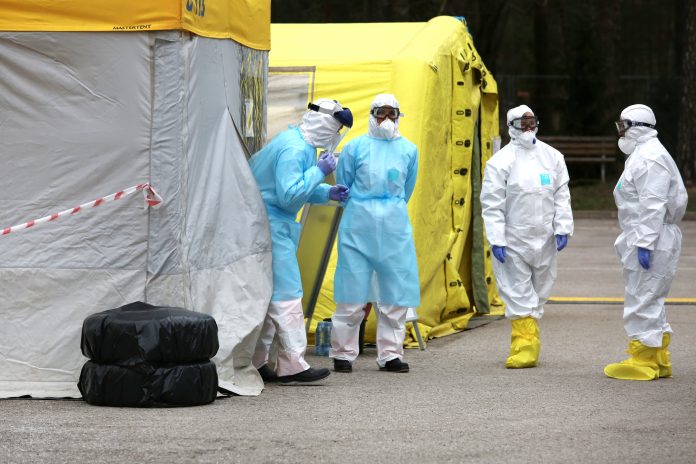Steve Sawyer, managing director of Access Health & Social Care, explains how technology is helping care providers to protect the safety of frontline care workers during the COVID-19 pandemic
Reports of the impact of COVID-19 on the health and social care sector have dominated news reports in recent weeks, with increasing concerns about the safety of care workers and the people they provide care to, who are often among the most vulnerable in society.
Containing the spread of COVID-19 in the health and social care sector is a complex task and much hinges on ensuring the safety and wellbeing of keyworkers. Having a strategy in place to monitor and reduce the spread of infection, both for residential and domiciliary care providers, is critical to ensure the continued safety of staff. Technology that many care providers already use has a vital role to play in this strategy.
Contact tracing
Credited by the World Health Organisation with containing the spread of the Ebola outbreaks in Africa, contact tracing identifies a network and timeline of people that may have recently been in contact with someone diagnosed with COVID-19.
The UK government, along with many others around the world, is currently working on a plan to roll out a widespread contact tracing system with an NHS app undergoing testing. Many in the care sector have already adapted this method in an attempt to limit the spread of the virus.
With technology, such as Access People Planner, care providers can utilise contact tracing to monitor suspected or confirmed cases of COVID-19, identify which care workers have been in contact with that individual and, in turn, who those care workers have been in contact with since.
This enables care providers to take action to reduce the threat of a wider spread across their organisation, including instigating self-isolation, checking on the condition of those who may have been exposed or exercising further precautions when delivering services.
Responding to a potential case of infection
Once someone is identified as having a potential case of COVID-19, if a resident has a fever for example, and is put into isolation it is vital that care workers can rapidly communicate this with other members of staff.
Using a centralised care planning system enables this to be instantly communicated across all staff to ensure that procedures are followed effectively and ensure that staff and other residents are safe.
To help care providers get as much control as possible over this outbreak, some software providers, including Access have also rapidly implemented new functionality, or repurposed existing features, for improved reporting and identification of known and suspected cases or to help identify symptoms early and ensure necessary follow-up actions are taken.
Mental wellbeing
While the health of keyworkers and residents is clearly the main focus for care providers during these challenging times, another important consideration is the impact the lockdown period is having on the mental wellbeing of keyworkers.
The ongoing uncertainty around everyday life, jobs and income will result in many facing a difficult time financially and this can have a significant psychological impact. In a relatively low paying sector such as health and social care, it is vital that employers show flexibility at a time when many households are facing reduced income and increased living costs. Many care providers have turned to apps enabling staff to access their earnings before payday.
These solutions, such as Access EarlyPay, enable employees to instantly withdraw their earned income, up to a percentage of total available earned income set by their employer. In sectors where staff are paid hourly, such as social care or hospitality for example, this provides a more flexible method of payment for a highly flexible workforce.
In a low paying sector, pay is vital. Care providers are unlikely to be able to pay more, but they can pay in a better way by enabling staff to choose when they get paid and providing a safety net which can help to improve mental and financial wellbeing.
The COVID-19 pandemic is putting the health and social care, and the keyworkers that sustain it, under enormous strain. Technology undoubtedly has a vital role in ensuring that care providers can protect the safety and wellbeing of their staff and, in turn, keep some of the most vulnerable in society safe and well.











